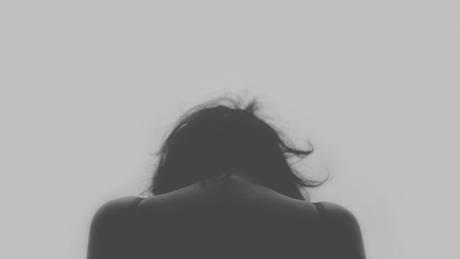
Redefine weak.
I’ve always been an emotional person. It’s something I haven’t been able to help, although at times I may have wanted to. Anger, passion, sensitivity, tears — it all naturally flows through me. I cry easily. And a lot. If I see someone else in pain, I’m angry (anger that’s often invalidated because I’m a black woman). It’s not something I’ve been able to control, although at times I have wanted to.
I grew up aware that being emotional has always been coded as “feminine” and attributed to people who exude so-called “feminine” qualities. This is most often associated with people who identify as women, but is also associated with men — almost always in the context of an insult. Men are not afforded the room to be acceptably emotional, unless those emotions include aggression or self-control. They are denied the ability to feel things outside of this very limited spectrum, and if they do anyway, they are no longer considered the type of man valued by a patriarchal society. They are branded “weak.”
But within the past year or two I’ve begun to wonder: Why do we automatically consider crying or being generally emotional, as weakness? And just as weakness, but also as a particularly sexist understanding of weakness: as feminine.
I have often felt conflicted about my natural tendency towards being emotional. More often than not, when people have asked how I am in the past, I have been quite guarded and have even lied. I usually said everything was great when it wasn’t because for most of my life I felt as though my feelings were too much for other people to handle. Or even if it seemed like they could handle them, I doubted that they actually cared. I attribute a large part of this to the emotional and physical abuse I suffered from my father, which led me to internalize my feelings and distrust others. I often isolated myself from others, especially in high school. If you can’t trust the people who are supposed to be closest to you then how can you trust anyone else?
I also feel I was particularly influenced to suppress my feelings as a black woman. The media often presents black women as uniformly strong and we’re expected to exhibit that strength daily. We’re not allowed to feel sadness, pain, or vulnerability. Of course people of color overall have (and continue to) experience and overcome racism, sexism, xenophobia and so much more, but I don’t need or want to be told that I should be strong in the face of these experiences. Facing such discrimination has no doubt manifested and bred strength within me, but it has also prohibited my ability to be fully human — to be vulnerable. One of the most peculiar and damaging stigmas that surround people of color is that we don’t experience mental illness or distress because of this stereotype of strength. Take the painstaking events of this past week (the U.S. presidential election), for example. I’ve seen people of all walks of life say that crying won’t help anything and to buck up and put on a brave face – yet grieving and mourning is a valid part of the human process, especially this one. It’s as if being stoic and emotional cannot be synonymous.
But through reflecting on things that have made me emotional in the past year alone, I have realized that we’d all be better off if we stopped viewing our “weakness” as just that and instead saw it as something more. As something as meaningful, helpful, and as mind-changing as our so-called “strengths.” Why should anyone be made to feel ashamed for crying?
Although my past experiences have led me to become quite good at keeping things inside — largely for the ridiculous, but very real, fear that these emotions will make me vulnerable — as I’ve gotten older, I’ve learned how to make self-actualization a large part of my life. I know try to be as open as possible. For example, when I cry in front of people (especially in a tense situation), they often become stand-offish, tell me to stop, and feel uncomfortable. But in that moment, instead of backing off, I recognize that I feel like I’m powerful, like I’m connected to an important part of myself and refuse to be unashamed to show it or feel bad about it.
Knowing who I am inside and out, and why I do the things that I do, has helped me learn that my often intense emotions are important — that my vulnerability gives me strength and vice versa. I’m made up of all these complexities and without them I wouldn’t be the person I am today. I’m still learning and accepting all the emotional sides of myself and, who knows, maybe one day they’ll even out a bit. But even if they don’t, I’m embracing the woman who carries these feelings with her every day.
Discomfort is crucial to learning and growing, and being emotional is an inevitable part of that process. Strength lies in finding power in the things that are seen and coded as flaws, and using them to make change not only in your immediate circle, but in the world around you.

